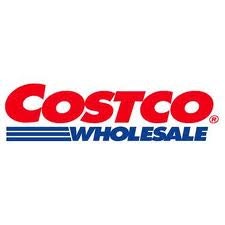Retail is a solid sector for your investing dollars, and Costco Wholesale Corporation (NASDAQ:COST) is a great investment for anyone looking to make money from the economic recovery. Costco trades at a premium, with a P/E ratio of 23.9, and for good reason: management has steadily expanded the business, and the company’s long-term outlook is very bright. There are, however, a couple of companies, such as Wal-Mart Stores, Inc. (NYSE:WMT) and Amazon.com, Inc. (NASDAQ:AMZN), that appear at first glance to be threats to Costco. I argue that Costco Wholesale Corporation (NASDAQ:COST)’s plan for growth is more sustainable than Amazon.com, Inc. (NASDAQ:AMZN)’s, and that the stock’s long-term outlook remains brighter than Wal-Mart’s and Amazon’s. Put another way: if you have to buy one company, buy Costco; leave Wal-Mart and Amazon on the shelf.
Costco’s impressive growth story
Costco Wholesale Corporation (NASDAQ:COST)’s FY 2013 Q3 spanned the 12 weeks ending May 12. Earnings per share clocked in at $1.04 for the quarter, up an impressive 18% from Q3 of 2012. This was in part due to sales expansion of 8% and comparable (same-store) sales growth of a very respectable 5%. Costco expects to add 28 new warehouses in FY 2013, or a 4.6% increase in stores. A large piece of that expansion has been (and will be) in Japan and Taiwan, which helped account for a 19% increase in membership year-over-year. With additional new stores in those two countries, Costco has some great opportunity for immediate growth.
Worldwide, membership renewal stood at 86.4% at the end of Q3 2013. Costco is sacrificing a little in the gross margin category to lower prices, as the value perception is “driving sales, member shopping frequency, member sign-ups and renewals, and market share,” according to the company. Costco Wholesale Corporation (NASDAQ:COST) also has an e-commerce platform, Costco Online, which grew sales by over 20% year-over-year in the U.S. and Canada.
Part of Costco’s incredible story is management’s fantastic treatment of employees. With a starting wage of roughly $12 per hour and the average employee earning $21 an hour, it is no wonder that worker turnover is so low (which saves the company significant recruiting costs). Those high wages allow greater selectivity in hiring, higher worker morale, and a superior guest experience. This particularly compares favorably to Wal-Mart Stores, Inc. (NYSE:WMT).
Threat one: Wal-Mart
Wal-Mart is the obvious threat to Costco Wholesale Corporation (NASDAQ:COST), given that its Sam’s Club concept is a direct competitor. Wal-Mart’s strategy is to slash costs and thereby offer products for cheaper than its competitors. Unfortunately, when this strategy is implemented, customer satisfaction suffers. A customer’s experience with store employees drives their satisfaction with a store visit, and poor employee pay results in lower employee morale and therefore a weaker guest experience at Wal-Mart Stores, Inc. (NYSE:WMT).
Same-store sales decreased by 1.4%, and EPS growth was anemic ($1.14 for Q1 of FY 2014, which aligns most closely with Q1 of calendar year 2013, compared to $1.09 for Q1 of FY 2013).
Wal-Mart has additional problems; its low-road strategy was not sufficient to avoid cannibalization by the dollar-store segment of the market, which performed quite well throughout the recession. Wal-Mart is increasingly squeezed between the superior customer experience at Costco, the price-undercutting from the dollar store and Amazon end of the market, and its own worker dissatisfaction (including a nascent but growing union movement).
As the company struggles to better define its niche, I expect comps to remain relatively flat (management is calling for flat to low single-digit growth this next quarter, for example). Wal-Mart has not defined a business vision that threatens Costco Wholesale Corporation (NASDAQ:COST)’s model.
Threat two: Amazon
Amazon.com, Inc. (NASDAQ:AMZN) is a threat to all retailers due to the prevalence of “show-rooming,” when a customer test-drives a product at a store and then buys it for less online. A recent survey found significant crossover between Costco and Amazon Prime members, which may indicate susceptibility to show-rooming.
Amazon is an interesting threat in that, while it grew revenue by 26% in Q1 of calendar year 2013, management predicts operating income “between a $340 million loss and $10 million [gain]” for Q2 compared to income of $107 million for Q1 of 2012. The razor-thin margins will catch up with the company; the earnings trends (EPS of -$.09 for 2012 compared to $1.37 for 2011 and $2.53 for 2012) are heading in the wrong direction.
Ultimately, the stock market will stop rewarding Amazon for growing revenue instead of earnings, and the company will have to change strategies to regain profitability. Given that Costco Wholesale Corporation (NASDAQ:COST) has a has a steady growth plan, is growing earnings, and has relatively little debt (Debt/Equity Ratio of 0.5 according to Morningstar), the company can weather the short-term storms and wait Amazon out.
Foolish bottom line
Costco Wholesale Corporation (NASDAQ:COST) treats its employees well and delivers an excellent customer experience (with a strong value perception), a strategy which is clearly paying dividends for the company long term. This company is not going to double in value in the next year, but management gives long-term investors reason to celebrate on each earnings call.
Wal-Mart is caught between competing market forces and has not yet articulated a clear response; avoid it until further notice. Amazon has done a great job of growing revenue, but ultimately investors will need to see earnings and profits with that revenue, and so its model will also fundamentally have to change.
The article Costco for the Long Haul originally appeared on Fool.com and is written by Michael Douglass.
Michael Douglass has no position in any stocks mentioned. The Motley Fool recommends Amazon.com and Costco Wholesale. The Motley Fool owns shares of Amazon.com and Costco Wholesale. Michael is a member of The Motley Fool Blog Network — entries represent the personal opinion of the blogger and are not formally edited.
Copyright © 1995 – 2013 The Motley Fool, LLC. All rights reserved. The Motley Fool has a disclosure policy.



